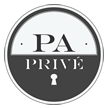Today we’d like to give you some advice on how to use the mighty world wide web to your advantage. Social media can be fantastic at helping you build a network but beware things can go wrong in a click!
Employers are more aware of your online presence than ever. So, wherever you are in your career, and whatever career you’re in, your online reputation is vital to your future. This guide provides advice on making your online self just as professional, impressive and sophisticated as you are.
Google Yourself
The first step is an obvious one: have a look at what everyone else can see.
Think carefully about what employers may think of what they come across. Turn on the privacy settings in your social media accounts, and delete anything that you’re unsure of. This is particularly important when you’re looking for a new job; don’t give employers a reason to doubt you.
Build connections and network
Without followers, friends, connections and interactions, it will be impossible to build a solid online reputation. Above all, you need to get networking.
Different platforms offer different routes to success:
- Twitter gives you instant and easy access to almost any business you’d like to work for. Within a few clicks you can be following them and even having a meaningful dialogue. The search function also allows you to find the people talking about the subjects you’re interested in. If you can respond thoughtfully and insightfully to Tweets you might make a lasting impression. You’ll also be able to learn more about the business, which will be particularly useful if you’re applying for jobs with them.
- LinkedIn is undoubtedly your most important tool for online networking. In a matter of minutes, a profile on LinkedIn can expand your contact list exponentially. Recommendations on LinkedIn are very powerful too, and an excellent way of extending your network. If you want to be a freelancer or work flexibly, LinkedIn will be enormously helpful. A good LinkedIn profile will be vital in gaining the trust of potential connections, so, complete it in full and seek out recommendations from people you’ve worked with. Make sure you use a simple and professional photo and cover all of your key skills and interests to allow the right people to find you. You should also create and join special interest groups to emphasise your expertise among peers.
- Because Facebook is fundamentally built around friends, you’ll use it in a different way – but that’s not to say it isn’t useful. For example, if you’re looking for a new job or are seeking out contract work, announce it on Facebook and you’ll be surprised by how many people can help.
- Blogging is a great way of showcasing your expertise, but also consider that more than 150,000 new blogs are created every day. This means that quality must be your top priority. Write only about subjects you have an in-depth knowledge of, and where possible, try to offer new and original content or perspectives. Bloggingcan seem daunting given the sheer scale of the blogosphere – two new blogs are created every second. Essentially, blogging can help you to develop your online networking if you do it well – in other words, if you can create interesting, remarkable and relevant content. You need to be a social blogger too – comment on other blogs and link to your favourite ones to build new connections.





